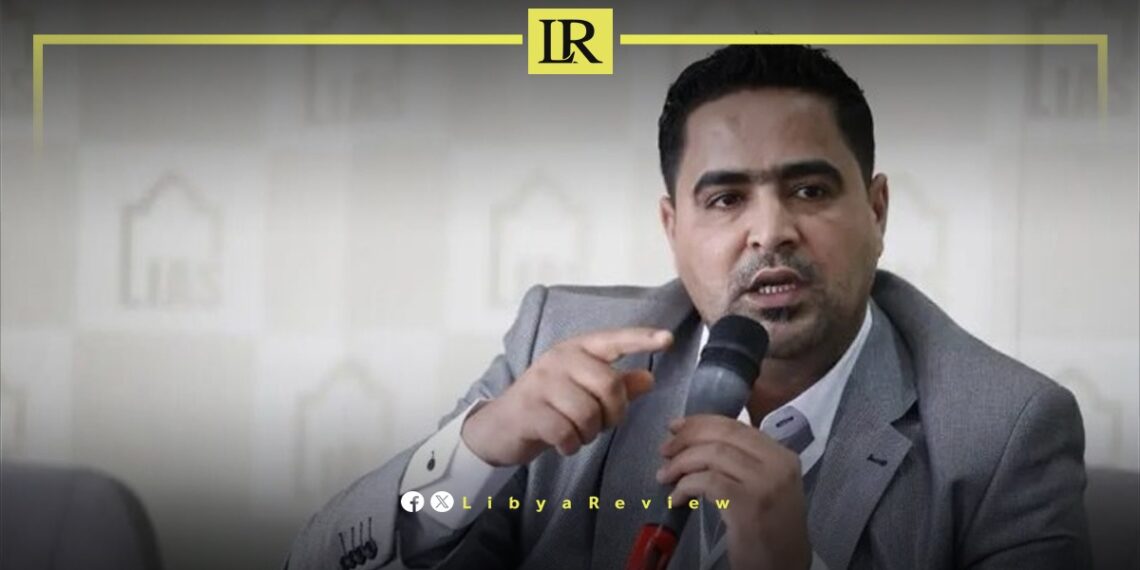Libyan presidential candidate Suleiman Al-Bayoudi has accused the Tripoli-based Government of National Unity, led by Prime Minister Abdul-Hamid Dbaiba, of obstructing elections.
Al-Bayoudi claims that despite Dbaiba’s public declarations of support for elections, he is actively delaying them. He also alleges that the Tripoli government intimidates civil society through repression and harassment.
Al-Bayoudi stresses the urgent need for public awareness about the voter registration process for municipal elections. He calls for supporting the Electoral Commission to ensure a proper democratic process. He asserts that the misinformation spread by Dbaiba’s government collapses under the reality of poor living conditions and the failure to resolve crises due to excessive government spending and pervasive corruption.
Al-Bayoudi cites the arrest of citizen Mashallah Faraj Fadl from Ajkharrah as evidence of the government’s repressive policies. He narrates that Fadl was arrested for expressing frustration while seeking medical aid for his child, highlighting the lack of services due to stolen fuel supplies. Al-Bayoudi argues that citizens face oppression unless they remain silent about corruption, with dissent leading to imprisonment on false charges.
He also addresses the ongoing electricity crisis, criticising Dbaiba’s government for failing to resolve power outages despite having the largest budget in Libya’s history. He points out that rural areas suffer the most, and the increased tariffs on industrial, agricultural, and commercial sectors ultimately burden citizens, leading to higher prices.
Al-Bayoudi acknowledges the government’s achievement in improving cash liquidity in banks but highlights contradictions in Dbaiba’s statements. He notes that while Dbaiba praises the availability of cash, he refrains from criticising the Central Bank governor, who supports his government. Yet, Dbaiba blames bank management for liquidity issues.
Regarding international efforts, Al-Bayoudi mentions Stephanie Khoury’s recent statements, indicating they fail to address Libya’s significant challenges. He notes her call for a unified authority aligns with upcoming political developments, suggesting a shift away from the corrupt current government.
Al-Bayoudi concludes that Dbaiba’s government, with its expired mandate, has deepened Libya’s crises. He argues that its continued hold on power demonstrates its intent to remain in control and hinder any political resolution, exacerbating the suffering of the Libyan people and obstructing the democratic process.


